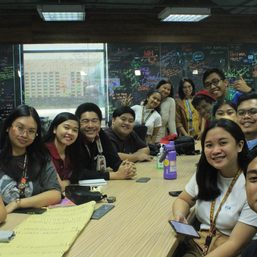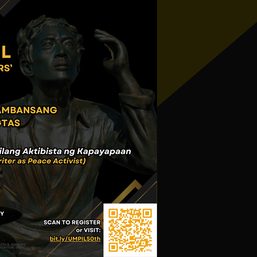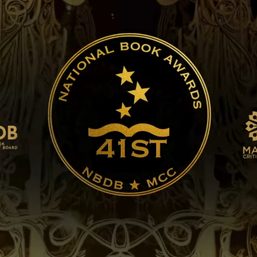SUMMARY
This is AI generated summarization, which may have errors. For context, always refer to the full article.
![[OPINION] In defense of libraries](https://www.rappler.com/tachyon/2021/11/libraries-relevance-sq.jpg)
When CHED issued a statement asking UP Diliman to be mum on the censures being done to libraries, groups, and institutions, including my alma mater UP SLIS, were quick to react on the issue. I am also on the side of the conversation that libraries should not be censored, and I want to discuss what functions the library and archives still serve in this day and age of Google, so that we fully realize what this censorship is all about and what it results in.
One of the biggest issues that libraries are facing nowadays is relevance. Minus the students, researchers, and senior citizens who are loyal patrons, libraries have struggled to keep up with online search engines. With all the possible answers literally in the palm of one’s hand, there really is no need to go to a library and dredge their entire collection for a piece of information. There are even some instances that you might not find what you were looking for in a library.
To add, one of the biggest frustrations of professional librarians is the fact that to be one, we had to take a course dedicated to librarianship, but people don’t seem to understand that. I can imagine all the times we’ve been asked, “May ganoon pala na course?” and having to defend ourselves, saying, yes, we exist, and no we are not taught how many times we should ring the bell.
Most of my colleagues, being professional librarians and archivists, often say that information on the web can be unreliable, especially if said info is found on Wikipedia. I do fully not agree with this, since over the years there have been efforts to fact-check information found on the internet. Even trustworthy news outlets have changed their tactic to disseminating news content online. Also, libraries can also be susceptible to misinformation and even biased opinion. In visits to some libraries, one can find that some information can be outdated, especially when the library is underfunded due to lack of patronage or budget relevance.
This is not to say that libraries are on the verge of extinction. Libraries have begun to adopt technologies that help them in disseminating information quicker. They have also formed networks to bridge the gap in the lack of their own materials. Also, while I can proceed to use Google and fact-check sources, some communities cannot. We often forget that there are still communities that heavily rely on the physical library.
Additionally, not all information can be found on the web. I remember during one of my research projects where I served as an assistant, I could not fully find information on the accounts of the events leading to Martial Law until I turned to libraries and archives. Libraries and archives can be seen as storage facilities for history. Libraries and archives form a haven where these types of accounts can be preserved for generations that have yet to learn about them.
Now that we have established that libraries and archives commit to the open access of information, our government, with its move to censor using the controversial NTF-ELCAC, has proven that they are fearful of an informed nation. While they state that those materials that they have censored were subversive and seem to back the communist agenda, it is not within their right to “weed out” the library as they see fit. The library does not intend to be malicious, but rather point out that all information is welcome. Libraries are non-partial and commit only to its role to safeguard information for generations to come.
Censoring a library only implies that we are not living in a democratic society, but a tyrannical one. What surprised me even more is the fact that CHED, a body responsible for the advancement and professional growth of the youth, had issued a statement that virtually translates: to let our libraries, and all that they stand for, die; that we should be bound to the will of the government even if it means doing the wrong thing. That is not what higher education is nor what it should stand for.
We should make a stand to protect our libraries even further. No default way to gathering information is perfect, but perhaps the biggest contribution that libraries have given us is the creation of a safe space for information. In libraries, we are given the opportunity to read and learn about all kinds, whether Left- or Right-leaning ideologies, and decide for ourselves what our opinions and reactions would be. The online social network can be a toxic way to discuss issues. But inside the library, we are left to our own devices – without hindrance nor fear, as it should be. – Rappler.com
Gillian Reyes is currently working as a freelance editor, writer, and consultant for various institutions. As a registered librarian, he aims to promote the importance and necessity of libraries and archives. Also, as a budding writer, he is interested in writing young adult and speculative fiction.
Add a comment
How does this make you feel?


![[OPINION] Defend freedom of thought! Hands off our libraries!](https://www.rappler.com/tachyon/2021/09/ispeak-libraries-1280.jpg?fit=449%2C449)
![[OPINION] Education for life: Weaving ethics in all subject areas](https://www.rappler.com/tachyon/2024/03/Education-for-Life-Weaving-Ethics-in-All-Subject-Domains.jpg?resize=257%2C257&crop_strategy=attention)
![[OPINION] Limited intake of international students: Is Canada knee-capping its future?](https://www.rappler.com/tachyon/2024/02/tl-canada-forgeign-student-cap-02232024-2.jpg?resize=257%2C257&crop_strategy=attention)

![[Rappler Investigates] Who’s fooling who?](https://www.rappler.com/tachyon/2024/02/rodrigo-sara-duterte-2019.jpeg?resize=257%2C257&crop=167px%2C0px%2C900px%2C900px)
![[EDITORIAL] Ang break-up Valentines ni Sara at Marcos](https://www.rappler.com/tachyon/2024/02/animated-2024-valentines-day-political-divorce-carousel.jpg?resize=257%2C257&crop_strategy=attention)



![[EDITORIAL] Dapat makinig si Marcos kay UN special rapporteur Irene Khan](https://www.rappler.com/tachyon/2024/02/animated-un-marcos-human-rights-elcac-carousel.jpg?resize=257%2C257&crop=327px%2C0px%2C720px%2C720px)






![[EDITORIAL] Pikon ang NTF-ELCAC matapos mabuking ang fake surrender](https://www.rappler.com/tachyon/2024/02/animated-fake-surenders-military-carousel.jpg?resize=257%2C257&crop=326px%2C0px%2C720px%2C720px)






![[OPINION] Jhed and Jonila’s fight for justice](https://www.rappler.com/tachyon/2024/02/TL-jhed-and-jonilla.jpg?resize=257%2C257&crop=411px%2C0px%2C1080px%2C1080px)
There are no comments yet. Add your comment to start the conversation.